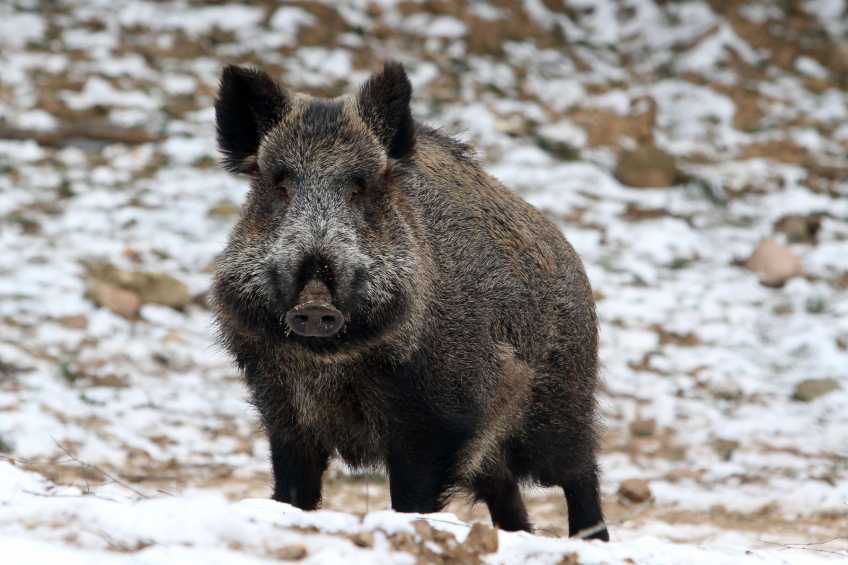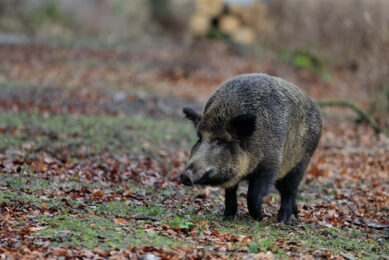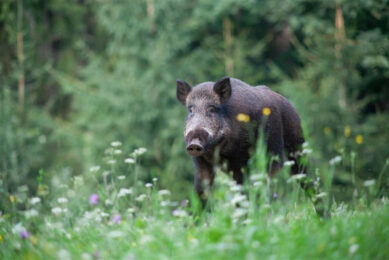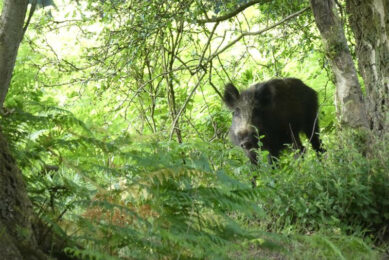Germany concerned about ASF in Eastern Europe

The ongoing reports of African Swine Fever (ASF) outbreaks in Eastern Europe is worrying pig and pork organisations in Germany. Several initiatives show Germany is very alert.
Last week there was a conference as well as trainings on what to do in the event of an ASF outbreak.
Conference about African Swine Fever
The risk of introduction of African Swine Fever (ASF) from the Baltic States and Eastern European countries to Germany is high, and it is mankind who plays a decisive role as a vector. Those were some of the messages that were spread last week at a conference dedicated to the virus, called, ‘African Swine Fever – impact, control measures and prevention’.
The conference was held in the R+V Agricultural Competence Centre in Mainz, Germany, home of German insurer R+V Versicherung.
Spread of African Swine Fever
Dr Friedrich Caspers, the company’s CEO reminded all that ASF is gradually creeping westward. The spread of the pig disease, however, is not a typical national problem; rather, the fight in Europe should be fought jointly with other states.
Prof Franz J. Conraths the Friedrich Loeffler Institute (FLI) pointed to human misbehaviour as a major factor in the spread of the ASF. Each day one should expect the virus to hit the German borders, and with much more serious consequences than currently being experienced in the Baltics, since Germany houses large wild boar population.
Draw attention to ASF
Dr Ursula Gerdes, managing director of Lower Saxony Animal Disease Board (Tierseuchenkasse), appealed to all responsible parties, to get the attention of pork producers, veterinarians as well as hunters in order to prevent an outbreak of ASF.
Norbert Meyer, pork producers, and member of the Lower Saxony Animal Disease Board, warned that epidemics of all kinds could travel long distances faster than before through tourists and harvest workers. Even in ‘peace time’, the industry should prepare for an outbreak of ASF, because in times of crisis it is too late.
The director of the association of Lithuanian pig producers, Algis Baravykas, pointed out that the ASF virus in Lithuania does not kill wild boar as fast as its namesake Classical Swine Fever (CSF). For that reason, ASF might still be around for a long time in the Baltic country.
Preparing for an ASF outbreak
In order to be prepared, should an ASF outbreak occur, a two-day mass practice was done earlier this month in the state of Schleswig-Holstein, near the towns Wahlstedt, Bad Segeberg and Eutin.
German firefighters wear protective suits while disinfecting a vehicle during a simulated exercise for an outbreak of African Swine Fever at a pig farm in Kublank, Germany, 23 September 2014.
Photo: EPA/Bernd Wuestneck
In total, 60 veterinarians, farmer representatives, hunters, the agricultural council, the fire brigade and even emergency protection units were present. They all focused on a fictitious scenario with an outbreak of African Swine Fever on a farm. The forces practised on a 1 km radius cull zone and a 3 km radius intensive control zone where no movement was possible. Additionally, a 10 km control zone was installed.
ASF in wild boars
In addition, the scenario ‘what would happen if the virus was found in wild boars’ was discussed – quite likely when looking at the way things develop in Eastern Europe.
Then also a 10 km control zone would be installed, in combination with very strict 12 month regulations for pig transports.
ASF can continue to live for many years
The experts on the spot indicated that it is not easy to combat ASF as the virus can continue to live for many years when pig bodies have been frozen.
It can be transported by hunters, by seasonal workers or by just a truck driver throwing the remains of a pork snack out of his window. For that reason, even at important motorways, as well as at gas stations, there are warning posters hung up to asking people to behave responsibly with litter.











